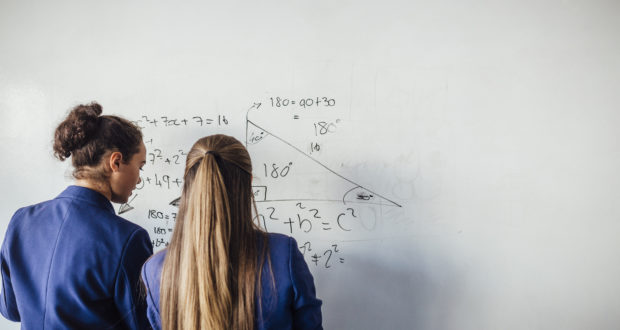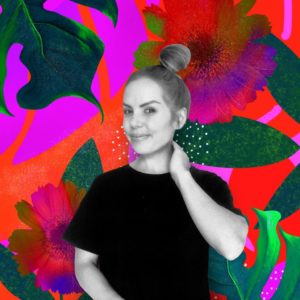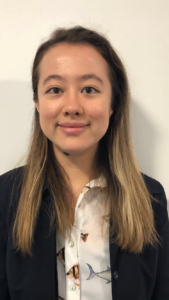Recent headlines about students disengaging from mathematics paints a worrying picture.
Some experts propose innovative ideas to rehaul the curriculum, others lament about the need to keep things as they have always been, teachers are given advice about how to motivate students to study it, and stakeholders remind of its importance when developing critical future thinkers.
But students are switching off as soon as they are given an out.
Is there nothing we can do?
We might think mathematics is no longer needed in a digital society where everyone has Google in their pockets.
Yes, there are lots of apps out there to solve algebraic equations for you. But by seeing maths as more than just a school subject could be a way to restore its glorious reputation.
When Laura was interviewed to do a radio show entitled ‘The Dying Arts’, to give an expert view on the current state of mathematics education, she was both nodding along to the idea of maths as we know it being a dying art, and at the same time felt keen to expose the narrowness of this train of thought.
Society is changing at a fast rate, especially due to digitalisation.
With that many traditions die, such as horology (making watches), binding books or lead glass-making. It is easy to think this is something that also applies to mathematics, but to be specific, this thinking does not refer to mathematics overall, but a modicum section of it: school calculus.
Skills to manipulate equations, to differentiate or integrate functions or to infer the size of an angle are all skills that have less utility value nowadays. Your phone can do this for you.
Nevertheless, the same way that people have not stopped reading because of e-books, people also have not stopped needing mathematical thinking.
What digitalisation means is more maths being available for things like decision making, healthcare, innovative new technologies, sustainable futures, and even personal uses such as tracking progress with your Tiktoks.
In her recently submitted research article, currently under review, Laura shows how mathematics activities used in schools are largely based on “re-branding” boring activities that build outdated mathematical skills. To propose a more comprehensive re-imagining drawing from what is useful for new generations, from what truly appeals to young people.
Mathematics is more than just calculus. It is a way of thinking, it is understanding causation, keeping calm before probabilities of viruses and vaccinations.
It is about not getting anxious in your financial planning meeting, it is about knowing how easy it is to misleadingly manipulate data, or to be able to evaluate the impacts of small but frequent actions such as changing to a keep cup.
What’s more: we all use maths every day.
Today, school maths keeps building on specific strategies and details, emphasising a construct that no longer manifests the most essential mathematics skills - the book binding face of maths.
This mathematics is inaccessible if you drop the ball once. It is also off-putting for many and makes students question the trustworthiness of educators who try to justify the value of learning such details.
The realm of maths is massively larger than what is addressed in schools. How do cryptocurrencies work? Why do passwords need to be so complicated? What patterns are shared between different communication systems? What can one inversely derive from a 2D scan of a 3D body cavity?
It’s up to stakeholders to put a stop on maths becoming a dying art.
We could make maths classrooms buzzing factories of creative ideas and expanding minds. Labs to try and solve the pending issues of equity, sustainability and so on.
That would be of massive interest for generations to come.
After a few decades of reality shows focusing on light hearted entertainment, in the footsteps of the wellness boom emphasising the body and soul, there might be a huge opportunity for ‘scholarness’, showing the appeal of maths re-established to add real value to people’s lives.
Laura has often gotten into discussions about how sudokus or puzzle apps are enjoyed, she has entertained trendy millennials in night clubs with maths problems.
Mathematics can both ignite a spark in your mind and leave you pondering. The exploration of the intellectual and collaborative side of maths can be shared by new generations that “have experienced it all”.
It is an opportunity for growth and progress for us all if we let it be.
Dr Laura Tuohilampi is mathematics education researcher at UNSW, author of ‘Seriously Fun Maths’, and founder of Maths for Humans.
Scarlett Li-Williams is a postgraduate research student in the Faculty of Science at UNSW, research assistant and founder of SAAS Missions.
Do you have an idea for a story?Email [email protected]
 Education Review The latest in education news
Education Review The latest in education news


